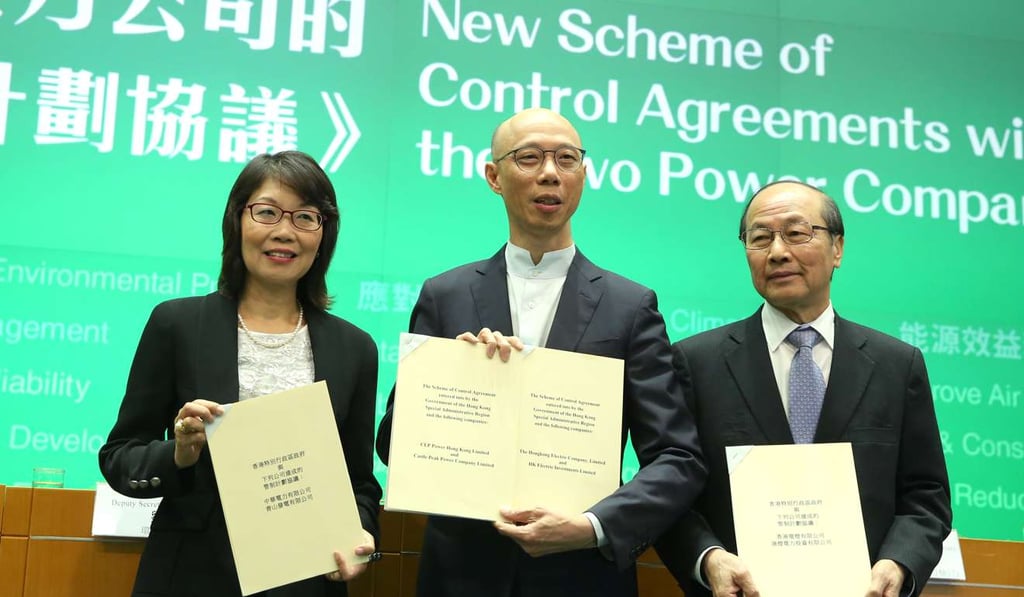Why Hong Kong needs higher, not lower, electricity tariffs
Paul Stapleton is left puzzled by the government’s self-congratulatory stance on bargaining down future power bills, when conservation aims are already struggling against profligate consumption by Hongkongers in a low-tariff environment


New power deal ‘favourable’ to consumers, Hong Kong environment minister says
A good parallel is the price of cigarettes. Many governments slapped heavy taxes on tobacco years ago, and these continue to rise. Hundreds of studies have shown that as taxes have risen, tobacco sales have fallen dramatically. Heavy taxes on cigarettes in many countries have had a much greater deterrent effect than ugly photos on the packages.
Such is the power of price incentives – even for an addictive substance like nicotine. Smokers, like most others, are price sensitive.
If consumers become acutely aware that their power bill is connected to the use of their air conditioner, behavioural change can result
Likewise, if consumers become acutely aware that their power bill is connected to the use of their air conditioner, behavioural change can result. And this is only the mild discomfort from choosing to use an energy-light fan over an energy-hungry air conditioner, as opposed to a highly addictive substance.
